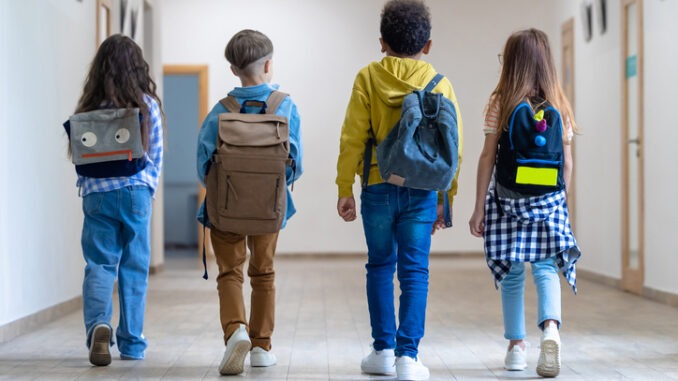As reported by CYP Now, government figures show an 82% increase in alternative provision placements and a 15.4% rise in free school meal eligibility since 2018/19
The data comes from the Department for Education’s latest school census, school level annual school census, general hospital school census and alternative provision census.
It reveals that there was an increase of 18,200 in pupils across all school types from last year alongside a rise in children living with vulnerabilities.
In 2023/24, 24.6% of pupils were eligible for free school meals, up from 23.8% in 2022. This represents 2.1mn pupils.
The Child Poverty Action Group (CPAG) has said 900,000 people are not eligible for FSM because the qualifying criteria is so restrictive. It has called for all political parties to make universal free school meals a priority pledge in their election manifestos.
CPAG’s head of education policy Kate Anstey said: “Classrooms across England are full of children who are hungry or worrying about food. And lunch halls can be a place of stigma for kids who do get a free school meal. Ensuring every child has a free lunch at school is essential to support wellbeing, learning and inclusion. All political parties should fulfil their responsibility to protect children by committing now to universal free school meals.”
Alongside a rise in AP placements and FSM eligibility, 54,000 pupils were identified as being a young carer in 2023/24 – an increase of 39,000 from the previous year.
Carers Trust’s policy and practice manager Andy McGowan said: “Whoever forms the next government needs to urgently prioritise improving young carer identification and support. With persistent absence rates for young carers nearly twice as high as their peers’, this is a group of pupils who cannot be ignored. Local carer services up and down the country are working tirelessly to increase recognition and awareness in schools but they can’t tackle this alone.
“We’re calling on all political parties to commit to funding initiatives that improve identification for young carers in education and to require every education setting to have a young carers lead and policy. Young carers need better and they deserve better.”
Some 23.9% of pupils in school arranged alternative provision had an education, health and care plan and 42.5% were in receipt of SEN support.
Anne Longfield, chair of the Centre for Young Lives and former Children’s Commissioner for England, said: “These statistics are a reminder that millions of children in our country are living vulnerable lives. During the election campaign, we have heard far too little from the main parties about how they will tackle these problems – many of which are generational, and some of which have worsened since Covid.
“The next government needs a change of mindset, making investment in early help a priority, and offering much greater support to every child, so all children have the best opportunities to grow up well.”
CYP Now has collated calls to the next government from children’s charities and organisations supporting young people.





Be the first to comment